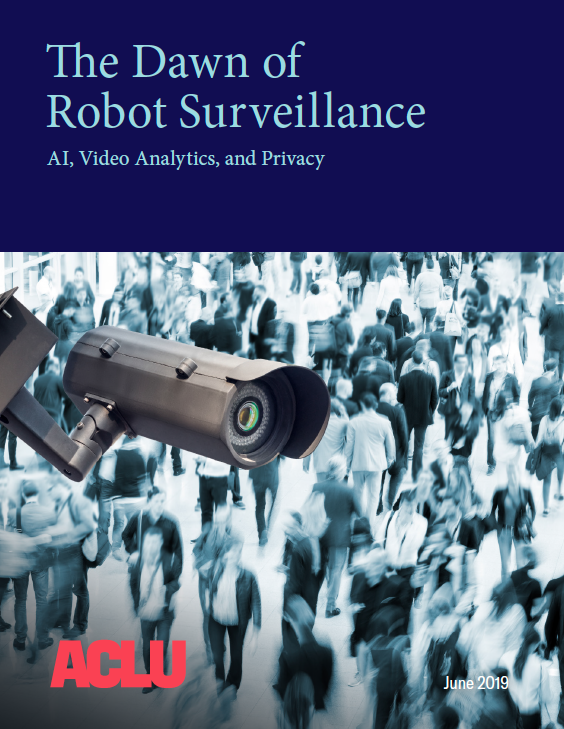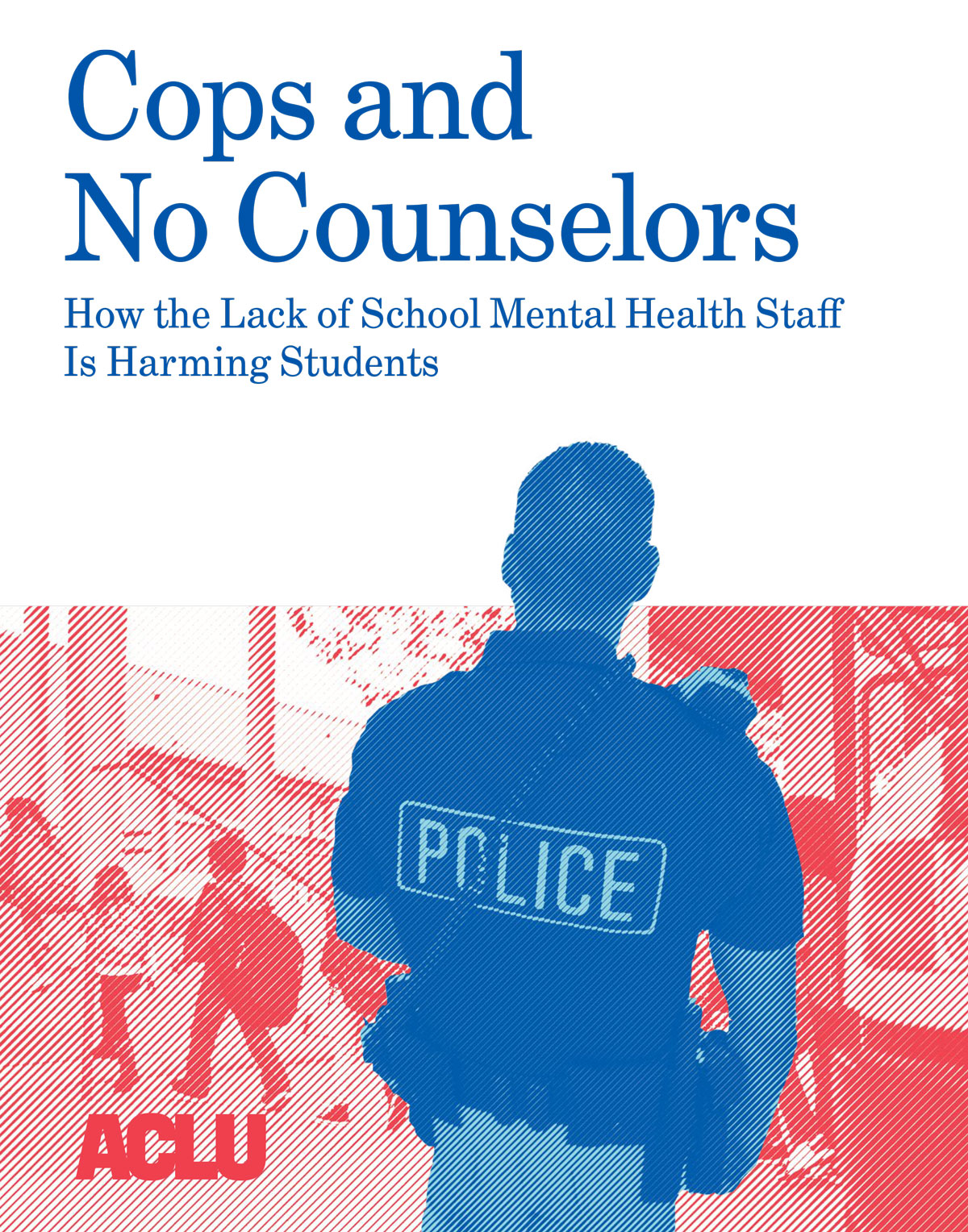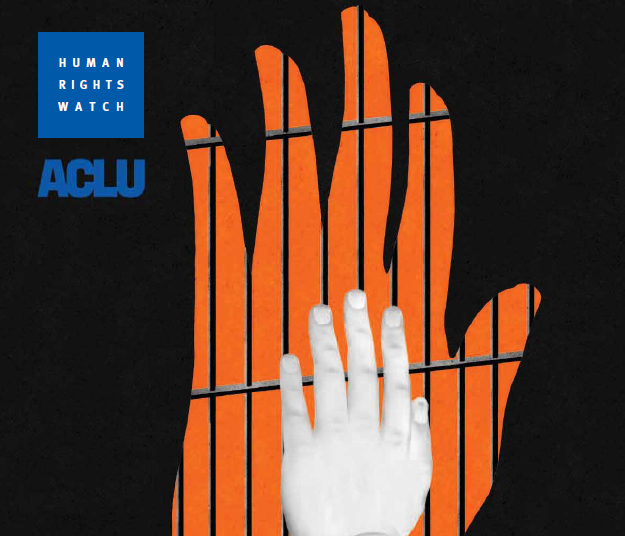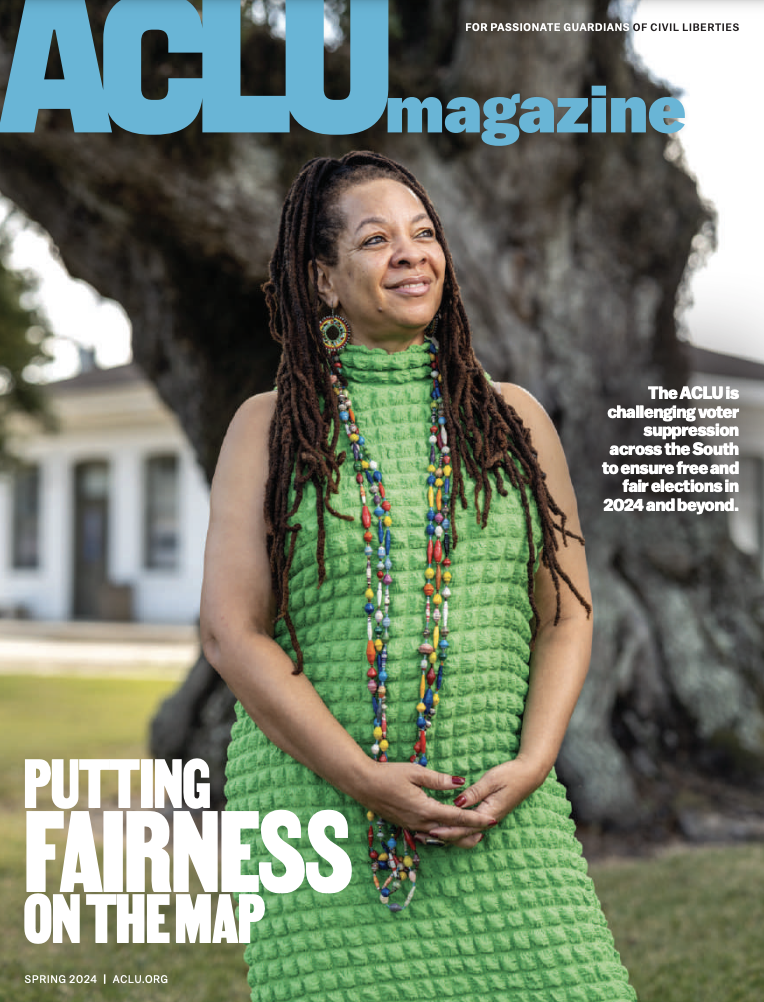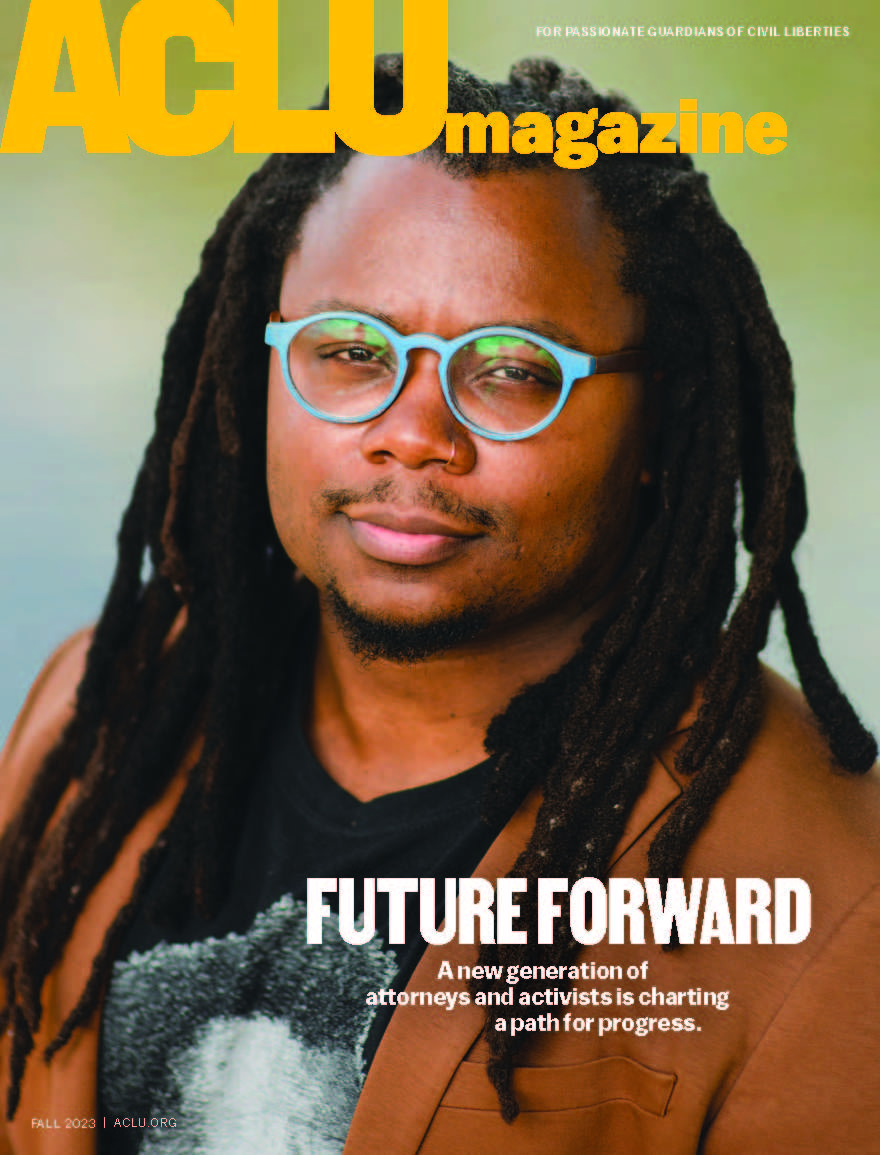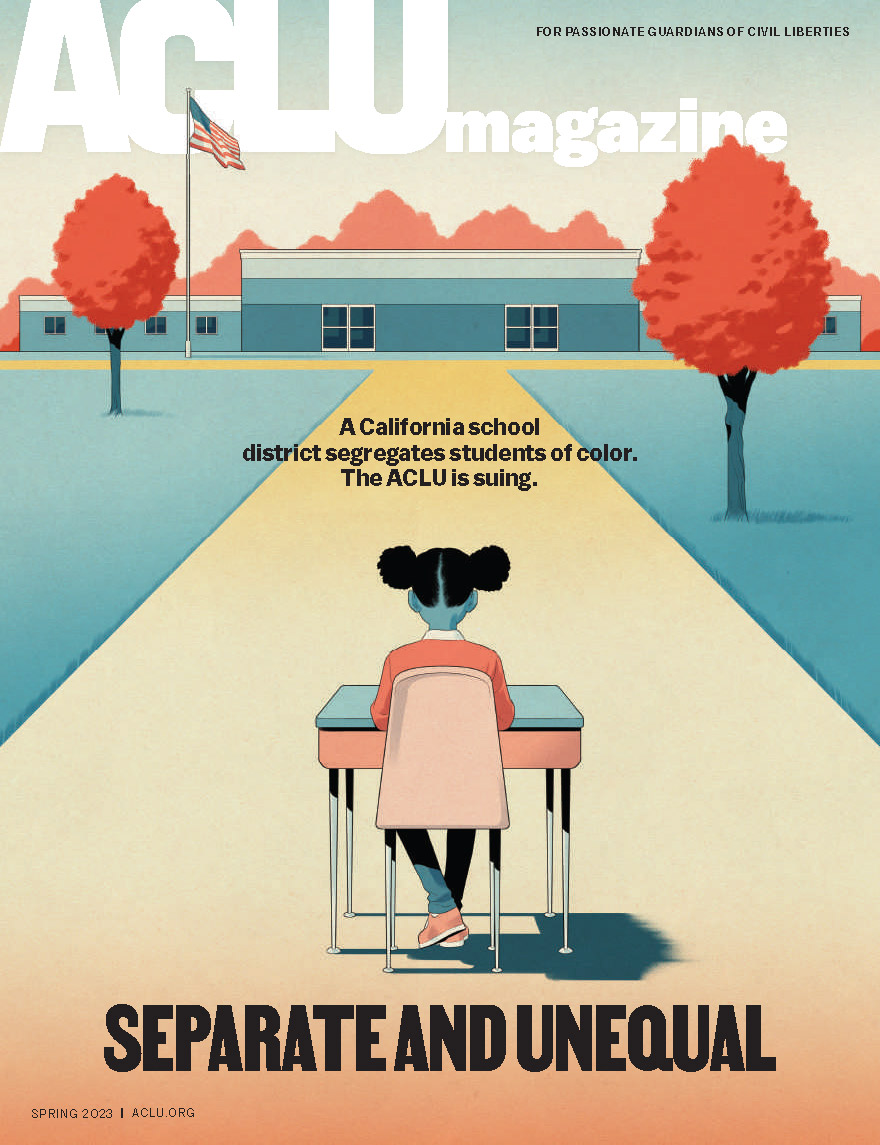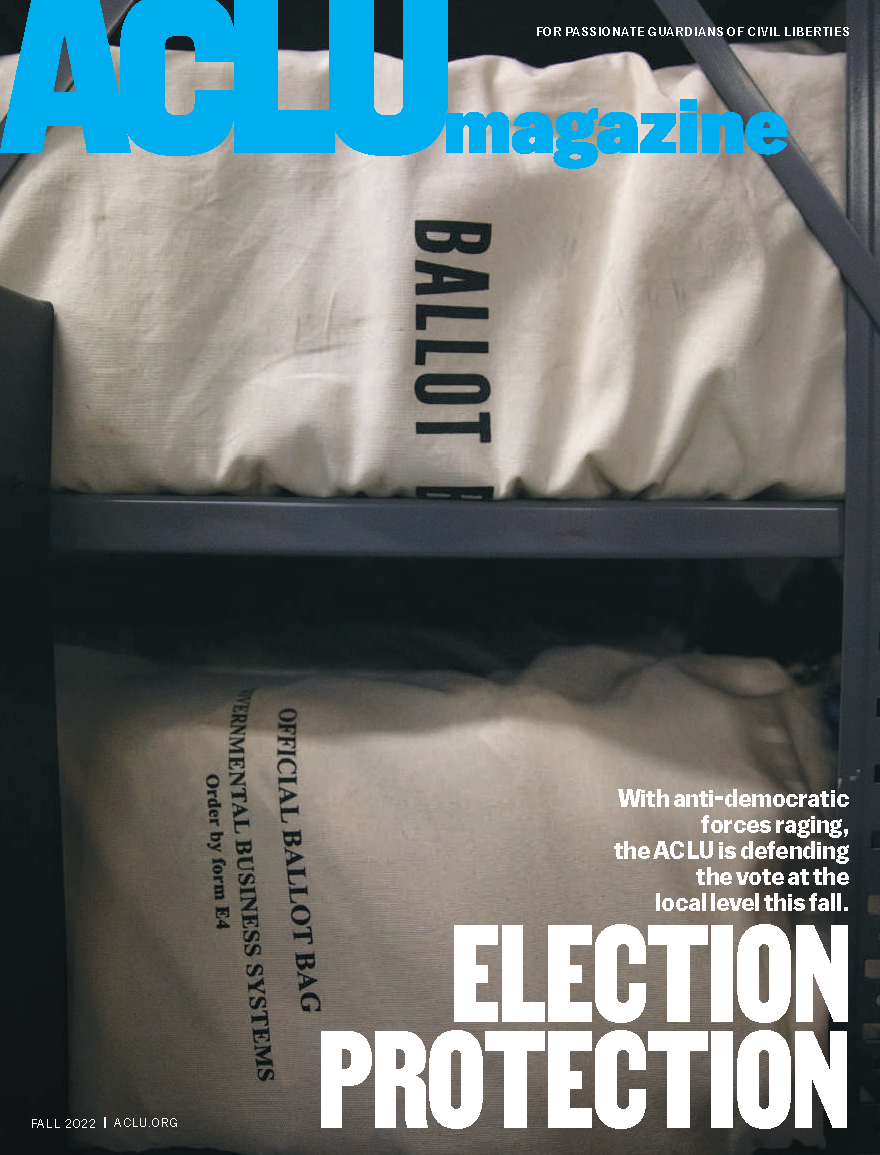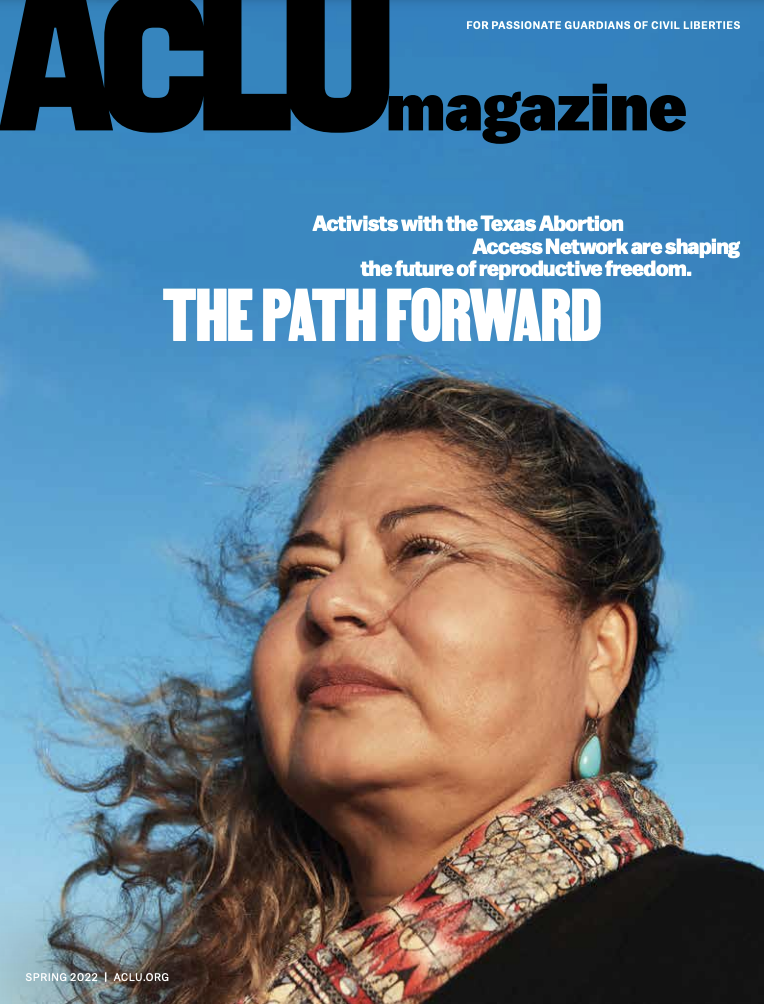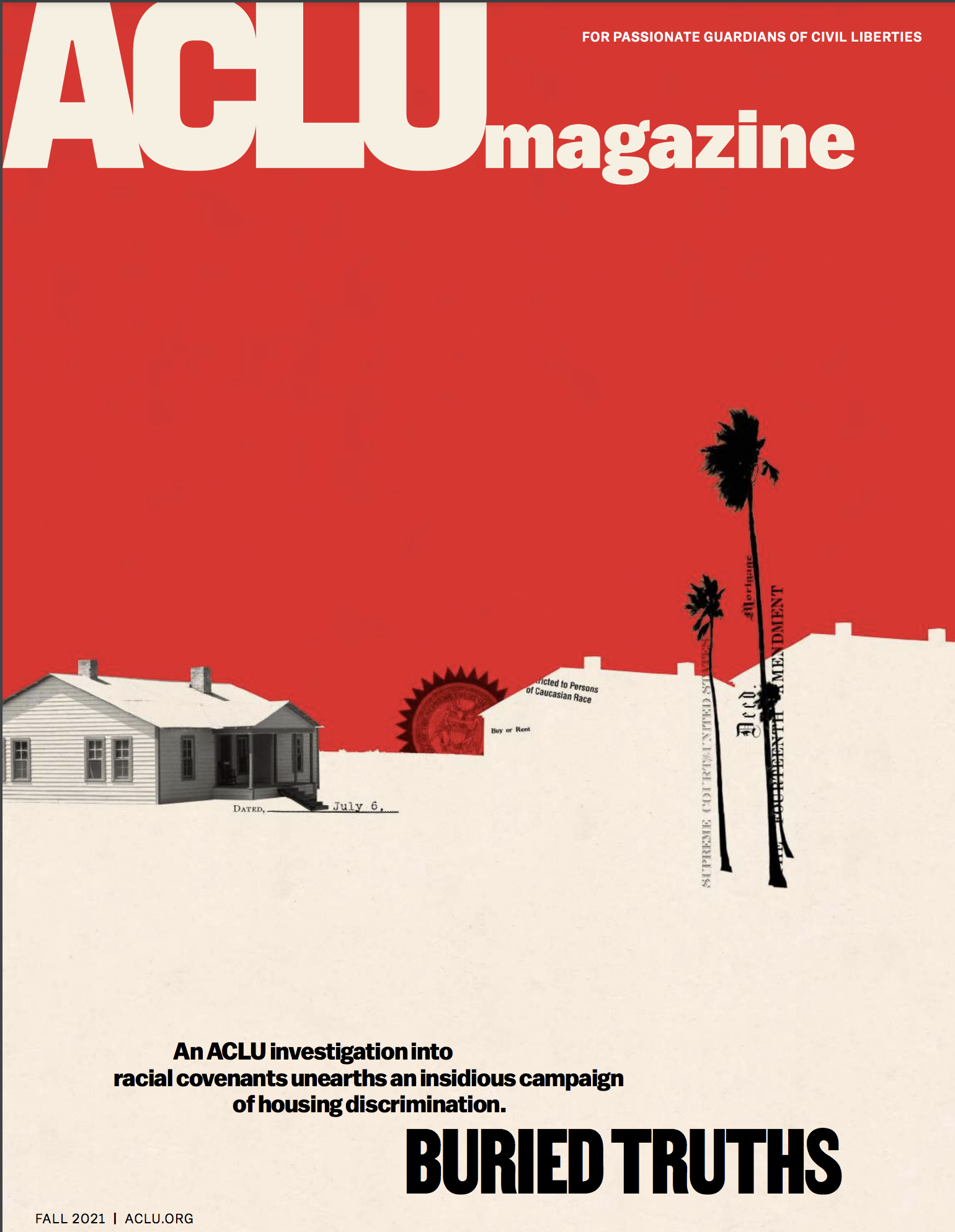Research & Publications
Access in-depth resources and analysis published by the ACLU regarding our most pressing civil liberties issues.
All Publications
Search will open in a new tab using DuckDuckGo
Worse Than Second-Class: Solitary Confinement of Women in the United States
This report provides an updated look on women held in solitary confinement in the United States. Since the ACLU published its first report on women in solitary in 2014, some things have changed —but many things have not. More attention has been placed on women in prison and on solitary confinement in general, but still, little attention has been paid to the specific plight of women in solitary confinement. Vulnerable populations, including pregnant people and women with mental illness, are still being placed into solitary confinement, and not enough is being done to enforce limitations on such placements.
This current report provides facts and data about women in solitary confinement in general, as well as specific populations of women who are especially vulnerable to the harms of solitary confinement, including girls, older women, transgender women, and women in immigrant detention. We also share insights from interviews with three survivors of solitary confinement and a clinical social worker about the experiences and impact of solitary confinement. Finally, the report includes both “reasons to hope”—reforms that have limited the use of solitary confinement in the United States—and recommendations for what must be done to continue combating this urgent, pervasive problem. It is critical to address the treatment of women in prison— especially those women subjected to the social and sensory deprivation of solitary confinement.
District Attorney Jackie Lacey’s Shameful Death Penalty Record New Report Shows LA County is a Top Driver of Death Sentences Nationwide
A new ACLU report reveals troubling racial bias, unfairness, and overuse of the death penalty in Los Angeles under District Attorney Jackie Lacey’s watch. In March of 2019, California Governor Gavin Newsom issued a moratorium on the death penalty, putting a halt to all executions under his watch.
Los Angeles voters have repeatedly rejected the death penalty at the ballot box, yet District Attorney Jackie Lacey has continued to seek the death penalty in capital trials. During her almost seven-year tenure as District Attorney of the county, Jackie Lacey has sent 22 people to death row. These sentences have been characterized by racial bias — every single one of the 22 people was a person of color — as well as serious concerns regarding the quality of lawyers who represented defendants who couldn’t afford private counsel. Out of the 22 cases, nine defendants had lawyers who were previously or subsequently disbarred, suspended or charged with misconduct. A tenth defendant had a lawyer who repeatedly fell asleep through his trial.
Nationwide, we know that the death penalty is racially biased, error-prone and used to punish those with the worst lawyers, not the people who committed the worst crimes. The data from Los Angeles shows that far from an exception, Los Angeles, the nation’s leader in generating death sentences, is a major contributor to the unfair and discriminatory application of the death penalty.
It is long past time for Los Angeles to break from its pattern of using this unfair and discriminatory punishment. Take action today to stop DA Lacey from seeking the death penalty by signing the petition.
The Dawn of Robot Surveillance
Imagine a surveillance camera in a typical convenience store in the 1980s. That camera was big and expensive, and connected by a wire running through the wall to a VCR sitting in a back room. There have been significant advances in camera technology in the ensuing decades — in resolution, digitization, storage, and wireless transmission — and cameras have become cheaper and far more prevalent. Still, for all those advances, the social implications of being recorded have not changed: when we walk into a store, we generally expect that the presence of cameras won’t affect us. We expect that our movements will be recorded, and we might feel self-conscious if we notice a camera, especially if we’re doing anything that we feel might attract attention. But unless something dramatic occurs, we generally understand that the videos in which we appear are unlikely to be scrutinized or monitored. All that is about to change.
Today’s capture-and-store video systems are starting to be augmented with active monitoring technology known variously as “video analytics,” “intelligent video analytics,” or “video content analysis.” The goal of this technology is to allow computers not just to record but also to understand the objects and actions that a camera is capturing. This can be used to alert the authorities when something or someone deemed “suspicious” is detected, or to collect detailed information about video subjects for security or marketing purposes. Behind all the dumb video camera “eyes” that record us will increasingly lie ever-smarter “brains” that will be monitoring us. As we will see, technologists are working on teaching computers to do that monitoring in remarkable ways across a broad variety of dimensions.
Cops and No Counselors
The U.S. Department of Education recently required every public school to report the number of social workers, nurses, and psychologists employed for the first time in history. Data about school counselors had been required previously, but this report provides the first state-level student-to-staff ratio comparison for these other school-based mental health personnel, along with school counselors. It reviews state-level student-to-school-based mental health personnel ratios as well as data concerning law enforcement in schools. The report also reviews school arrests and referrals to law enforcement data, with particular attention to disparities by race and disability status. A key finding of the report is that schools are under-resourced and students are overcriminalized.
"You Miss So Much When You're Gone"
Mothers in jail are being torn from their families and losing contact with their children even before they have been convicted of a crime.
A report by the ACLU and Human Rights Watch, “‘You Miss So Much When You’re Gone’: The Lasting Harm of Jailing Mothers Before Trial in Oklahoma,” finds that jailing mothers even for short periods of time can result in overwhelming debt and loss of child custody. Based on more than 160 interviews with jailed and formerly jailed mothers, substitute caregivers, children, attorneys, service providers, child welfare employees, and advocates, this report documents the harms experienced by women with minor children jailed pretrial in Oklahoma – which incarcerates more women per capita than any other state.
An estimated 80 percent of women in jails in the United States are mothers with minor children and are more likely to be single parents or provide primary care to their children than jailed fathers. When moms are incarcerated, their children are more likely to end up in foster care.
When a mother is jailed even for a short time, the entire family is punished. Jail stays can snowball into long-term family separation as moms struggle to overcome obstacles to regain custody of their children and get back on their feet.
Women are the fastest growing correctional population nationwide. Local jails are a major driver of that growth. The number of women in jail has increased from approximately 8,000 in 1970 to 110,000 in 2014. And over the past 15 years, 99 percent of jail growth has been a product of pretrial incarceration. Women may have more trouble affording bail than men because of higher poverty levels and the gender pay gap.
Jails, intended to house people for much shorter periods of time, are often ill-equipped to facilitate family visits. Jail visitation policies in Oklahoma often bar children from in-person visitation or have eliminated in-person visitation altogether. Phone or video visitation may be cost-prohibitive and impractical for communicating with young children. Mothers described losing contact with their children for months and the stress of not knowing their children’s whereabouts while they were in jail. The anxiety is compounded in cases where authorities have failed to ensure that jailed parents are transported to family and juvenile court proceedings, and receive regular case updates. These failures can effectively prevent parents’ full participation in key child custody decisions.
Moms know that the cost of staying in jail and fighting charges could be losing custody of their children. Every day they are jailed, they are missing out on their children’s lives, and many have limited means of remaining in contact. This creates enormous pressure to plead guilty, even if they are wrongly charged.
Jailed and formerly jailed mothers told the ACLU and Human Rights Watch they accepted guilty pleas because they had childcare responsibilities, had limited contact with their children, and were not involved in custody decisions. For example, April, a 30-year-old mother of three, said that she pleaded guilty to a robbery, against the advice of counsel, in exchange for a 10-year suspended sentence. April said she could have fought the charge, but she decided she had to get back to her children: “I wasn’t thinking ‘Oh I am going to be a felon [for] the rest of my life,’ I was just thinking I have to take care of my kids.” She said she had no contact with her children while in jail and she was not notified by family court that the paternal grandparents of her eldest child were seeking custody. April told us that she did not find out that her child was now in the grandparents’ custody until after she was released from jail.
The struggle doesn’t end with release from jail. Mothers are often presented with exorbitant bills for their jail stay in addition to other fines and fees, making it harder for them to get back on their feet and establish the stability they need to regain custody of their children. Oklahoma imposes significant costs on criminal defendants and upon conviction, often including a bill for time spent in jail, any medical expenses incurred during that time, fines, fees, and court costs, supervision fees and other costs associated with probation or rehabilitation, and significant costs to reinstate drivers’ licenses if their license is suspended or revoked. When attempting to regain custody of children in the state’s care, costs can also accumulate for psychological evaluations, mandated drug testing, and child support, placing poor parents at a significant disadvantage when attempting to reunite with their children. Many told us the obstacles seemed insurmountable.
The ACLU and Human Rights Watch urge Oklahoma and other states to require the consideration of a defendant’s caretaker status when making determinations about bail and sentencing, expand alternatives to incarceration, facilitate the active involvement of incarcerated parents in their children’s lives and proceedings related to child custody, and substantially curb the imposition of fees and costs, which can impede reentry and parent-child reunification.
Author: Jasmine Sankofa (@juSankofa)
Press Coverage: Rewire News Group | Tulsa World
Article/Blogs Written By Author: “Mothers Should Not Be Jailed and Separated From Their Kids Before Trial” – ACLU | “The Legal System Has Failed Black Girls, Women, and Non-Binary Survivors of Violence” – ACLU
Related Advocacy/Litigation: Brown v. Lexington County, et al | Bill Protecting Parents in Prison, and Their Children and Families, Passess Legislature
ACLU Magazine
Published twice a year, ACLU Magazine shares updates on the ACLU’s critical litigation and advocacy work across the country and tells the stories of the activists, attorneys, and clients at the heart of each case and campaign. To receive ACLU Magazine by mail, become a monthly donor today.
Stay Informed
Sign up to be the first to hear about how to take action.


